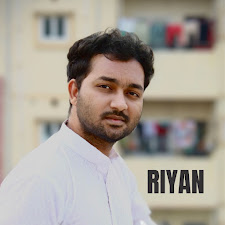The Evolutions of Poetry with LGBTQIA+ Personal by David Suiam
Poetry and the LGBTQIA+ community have an intertwined journey, evolving together through history. Poetry became a voice for LGBTQIA+ personnel to voice their thoughts and deliver their message to the world. From secret verses to confident statements, this evolution reflects societal shifts, struggles, and triumphs.
Century past, hidden and secret, love that wasn’t allowed was written about in mysterious poems. Poets like Sappho, who wrote about loving women, showed a way to talk about these feelings. But Societal protocols made these voices quiet, keeping such emotions hidden away. As time passed, the rebellious stanza challenged the norm, and the poem became a voice raised in verse, creating a new cultural revival even when faced with tough times.
The Evolution of Poetry with Riyan:
Riyan's journey began early with stormy thoughts and dreamy nights with thousand stars in the sky, but his voice remained concealed, much like a forgotten book, hidden behind a towering bookshelf, beyond anyone's reach. Until he discovered the art of poetry, he found a means to narrate his tale to the world without placing himself at the forefront."It was sixth grade when I realized I no longer needed to express my thoughts directly to others. Instead, I picked up a pen and paper and meticulously transcribed every sentiment, every word of what I needed to convey. It felt meagre at first, but in that simplicity, I said it all. That marked the inception of my journey into poetry," reminisced Riyan.
In Riyan's eyes, he doesn't consider himself primarily a poet but identifies as a storyteller. The art of storytelling has been an instrument in breaking down countless barriers and surmounting life's many challenges. As an LGBTQIA+ Youth, he has harnessed the power of poetry as a medium to express his identity, boldly defying societal norms and shedding light on what it truly means to be LGBTQIA+ in a society that constantly misunderstands.
Through poetry, Riyan's voice resonates loud and clear, and storytelling has allowed him to communicate with his friends and family without carrying the weight of judgments. Poetry has granted him the freedom to narrate his story precisely as he envisions it, liberated from external expectations and the aspirations of others. Ultimately, poetry has been the vessel through which he discovered his authentic voice.
Riyan remarked, “A page with eight lines, something that rhymes, even though sometimes it doesn’t, but the message was clear enough for everyone to understand the problem, That's how I see poetry: as an art, that shows me strength.”
Riyan has started on a journey of self-discovery through his writing, taking gradual steps towards building his writing career. He has performed both exclusive and open-mic poetry gatherings across Hyderabad. For those interested, stay tuned to upcoming Hyderabad Poetry events for the opportunity to witness Riyan's live performances and join in the celebration of his artistry.
The Evolution of Poetry with Patruni Sastry:
Patruni Sastry is a drag artist, lyricist, author, and LGBTQIA+ activist. As a performance artist, he combines poetry and lyrics to show sensitivity and awareness of the LGBTQIA+ community.As a member, Patruni has stumbled on the evolution of poetry with the LGBTQIA+ community. Over time, activists, including Patruni, have devised strategies to amplify their voices. Patruni personally conveys their message through original folk songs, performing in diverse settings like metro stations to engage people and spark meaningful conversations to convey these stories to a broader audience.
Quote “In Telugu literature, a significant historic moment occurred when Sahitya Akademi was entrusted to Manasan Luri, the pioneering voice documenting queer narratives in mainstream Telugu literature. While writers like Alipinde Jaya Prabha subtly touched upon feminist viewpoints and queer themes, explicit LGBTQIA+ characters or narratives were absent.”
In most of his writings, he focuses on conveying complex ideas to a broader audience, particularly those less familiar with the LGBTQIA+ community. He avoids introducing new terms and uses existing words with context to make them accessible to urban audiences. For instance, he wrote a song on gender dysphoria, expressing personal experiences without overwhelming the listener with unfamiliar terms. Another song, "India lo Drag ki Karwa," addresses the challenges drag artists face in India and its diverse forms. This approach allows him to use poetry to convey personal experiences in a way that resonates with the audience.
Patruni has recently published a memoir, “Life is Drag.” Talking about their life as a drag artist with a partner, a child, and an openly bisexual individual makes their story unique from others. In Patruni's words, “Drag, for me, is a manifestation of my gender, a practice where I explore my bi-gender identity. I must experience and affirm my gender through drag, similar to how it's vital for a trans person.”
They have captured these experiences in this book, which delves into their journey, from school abuse to family dynamics, offering insights into my sexuality and gender. As the first drag artist in India to write an autobiography, he aims to provide readers with a deep understanding of the life of a drag artist, celebrating his existence and expressing gratitude to those who have supported him. The book is kid-friendly and available on all e-commerce platforms and the Ukiyoto publishing house page.




Comments
Post a Comment